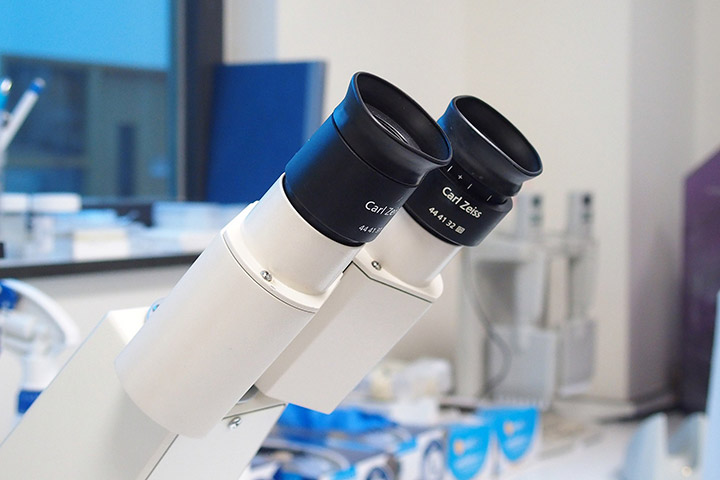Pancreatic Cancer Research Updates from ASCO 2024

The American Society of Clinical Oncology (ASCO) Annual Meeting brought together physician-scientists and researchers from across the world to showcase potentially promising treatment breakthroughs for many different types of cancer.
The theme of this year’s meeting, held in Chicago from May 31 to June 4, 2024, was The Art and Science of Cancer Care: From Comfort to Cure.
Here, Let’s Win highlights just some of the novel ongoing research in pancreatic cancer. We will cover some of this research, as well as other promising studies, in more detail in the coming months.
In the last decade, the amount of research devoted to pancreatic cancer has exploded, as evidenced in a talk by Andrew Aguirre, M.D., Ph.D., of the Dana-Farber Cancer Institute (Boston, Massachusetts). He noted that molecular subtyping of pancreatic cancer can guide therapy and that advances in chemotherapy have improved patient care. KRAS inhibitors may be poised to transform the care of pancreatic cancer patients, and there are multiple RAS inhibitors on the horizon. This is all good news for patients.
PASS-01 Shows Importance of Biomarker Treatment Strategies
Jennifer J. Knox, M.D., of the Princess Margaret Cancer Centre in Toronto, Canada, detailed some of the early results of the PASS-01 trial, which looked at pancreatic adenocarcinoma signature stratification for treatment. Both modified FOLFIRINOX and gemcitabine/nab-paclitaxel are standard first-line options for advanced pancreatic cancer, but a head-to-head comparison in North American patients was lacking. Also, reliable biomarkers to guide therapy selection are needed.
The gist of this trial was to understand whether there are any biomarkers that can be identified early in the diagnosis of metastatic pancreas cancer and, if something is found, then to use that information to choose treatment after standard-of-care chemotherapy. To help get answers, the trial incorporated comprehensive molecular profiling and patient-derived organoid drug sensitivity testing.
Early results showed that PASS-01 demonstrates the feasibility of integrating multiomics profiling and patient-derived organoid drug testing into a randomized trial for advanced pancreatic cancer. While gemcitabine/nab-paclitaxel showed a trend toward improved progression-free survival and overall survival in this BRCA mutation-negative cohort, the benefit of current first-line chemotherapy regimens remains low, with a significant proportion of patients unable to receive second-line therapy. These findings highlight the urgent need for biomarker-driven treatment strategies in advanced pancreatic cancer.
Experimental Drug Shows Promise
Clinicians at Georgetown University’s Lombardi Comprehensive Cancer Center (Washington, D.C.) reported promising preliminary findings based on outcomes in the first six patients with metastatic pancreatic cancer enrolled in a phase II clinical trial of the experimental drug BXCL701 in combination with the immunotherapy drug pembrolizumab. For the initial part of the trial looking primarily at the safety aspect of the drug combination, three women and three men with a median age of 57 were enrolled. One patient showed no signs of disease progression after 18 weeks on the trial, and one patient had stable disease at 9 weeks but was not yet evaluable for the 18-week landmark. The progression-free survival rate (no change or even signs of regression in the tumor) as determined by imaging was 50 percent. Three patients had significant reductions in a marker that indicates the presence of pancreatic cancer, CA 19-9, with 100 percent, 97 percent, and 73 percent reductions.
Older Patients Can Benefit from Chemotherapy
Some vulnerable older patients with untreated advanced pancreatic cancer can benefit from chemotherapy. But they can only benefit if they can tolerate an adequate number of treatment cycles. That news comes from the results of the randomized phase II GIANT Study. In this study, researchers recruited patients aged 70 years or older and performed a geriatric assessment to identify comorbidities, cognitive issues, and other geriatric abnormalities. Participants considered “fit,” meaning they had no geriatric abnormalities, were assigned to receive off-study standard-of-care treatment. Participants found to be “frail,” meaning there were severe abnormalities found, received off-study supportive care.
The 176 so-called “vulnerable” patients, meaning those with mild or moderate geriatric abnormalities, completed a geriatric and quality-of-life assessment and were then randomly assigned to receive either dose-reduced 5-FU, or modified gemcitabine plus nab-paclitaxel, every two weeks. Median overall survival was 4.7 months in the gemcitabine plus nab-paclitaxel arm and 4.4 months in the 5-FU combination group, with no significant survival difference observed between the two arms.
When the overall survival analysis was restricted to patients who received at least four weeks, or two cycles, of treatment, the median overall survival across the two treatment arms reached 8.0 months, in line with expectations for these regimens. Further analysis showed those with a performance status of 2 had significantly worse overall survival than those with a status of 0. Researchers found similar results when participants were stratified by physical and functional status and well-being. But a participant’s age did not significantly influence the results.
Tumor Microbiome Yields Clues in Early-Onset Pancreatic Cancer
The microbiome profile of early-onset pancreatic adenocarcinoma is distinct from that of average-onset disease, according to findings presented at the meeting. Early-onset tumors appeared enriched for several microbial genera associated with pancreatic diseases, a finding researchers called “significant” and worthy of additional study.
The researchers examined microbiome profiles of resected pancreatic cancer specimens from Cleveland Clinic (Ohio) and Roswell Park Comprehensive Cancer Center (Buffalo, New York) repositories. Samples had been resected from individuals with early-onset disease (younger than 50 years) or average-onset disease (older than 50 years). The analysis included 63 tissue specimens—13 tumor specimens and 10 adjacent normal specimens from individuals with early-onset disease, and 20 tumor specimens and 20 adjacent normal specimens from individuals with average-onset disease.
Investigators observed significantly higher alpha diversity in early-onset tumor specimens compared with adjacent normal tissue and average-onset specimens. Results showed significant variation of the tumor microbiome between early-onset and average-onset tumor samples.
Tissue Factor Emerges as Important Target
A novel antibody-drug conjugate (ADC) designed to treat advanced solid tumors with high tissue factor (TF) expression, dubbed MRG004A, showed high anti-tumor activity. TF, whose levels are significantly elevated in various cancers, particularly in pancreatic cancer, is strongly linked to poor prognosis and metastasis. As a result, TF has emerged as a pivotal target for new therapeutic strategies aimed at enhancing the treatment outcomes of patients with solid tumors. The study, Phase I/II First-in-Human Study to Evaluate the Safety and Efficacy of TF-ADC MRG004A in Patients with Solid Tumors, is spearheaded by researchers at Memorial Sloan Kettering Cancer Center, New York.
Early results showed manageable toxicity and a striking antitumor activity across multiple tumor types with high TF expression in heavily pretreated settings, including pancreatic cancers. These encouraging findings warrant further evaluation of MRG004A, particularly in the context of TF-overexpressed solid tumors.
REVOLUTION Adaptive Platform Study
Advanced pancreatic cancer does not respond well to treatments, including immunotherapy. But ongoing research in combining chemotherapy and immunotherapy, dubbed chemoimmunotherapy combinations, is showing some bright spots. Researchers reported results from the first two cohorts of REVOLUTION, an ongoing, adaptive platform study designed to assess the safety and antitumor activity of novel chemoimmunotherapy combinations in patients with advanced disease. Participants in this study will receive one of these combinations:
- Cohort A: The chemotherapy drugs gemcitabine and nab-paclitaxel with the immunotherapy drugs ipilimumab and nivolumab, OR
- Cohort B: The chemotherapy drugs gemcitabine and nab-paclitaxel with the immunotherapy drug ipilimumab and the anti-malaria drug hydroxychloroquine.
Early results show that Cohort A was well tolerated and demonstrated encouraging progression-free survival. Cohort B showed anti-tumor activity but had some dose reductions and early discontinuations.







